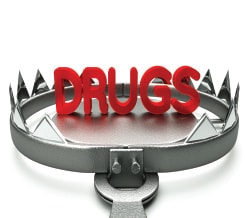- Hotline+971 50 27 28 29 1
- for Individual offices click here
STA's Team of Lawyers in Abu Dhabi, Bahrain, Doha, UAE, Luxembourg, Moscow, RAK, Sharjah, and Singapore. Find a Lawyer. ..
Read more informationNew Amendments to UAE Drug Law
 The UAE has made several new laws and amendments to existing laws as part of its move and reformative strategy towards a dynamic legal environment, significantly celebrating its 50 years as a nation. The newly issued amendments made to the anti-narcotics laws of the country is noteworthy a huge step in recent legislative reforms in the legal history of the UAE. The Government of UAE introduced the most extensive set of legislative reforms in the country's history as part of its growth as a nation of 50 years with amendments and changes to 40 existing laws in the UAE. The new laws were introduced to enhance the nation's development in various industries and sectors with legal reforms in areas inclusive of trade, investments, companies, commercialization, residents, security, and social affairs, following the preparations for celebrating 50 glorious years since its' founding in 1971.
The UAE has made several new laws and amendments to existing laws as part of its move and reformative strategy towards a dynamic legal environment, significantly celebrating its 50 years as a nation. The newly issued amendments made to the anti-narcotics laws of the country is noteworthy a huge step in recent legislative reforms in the legal history of the UAE. The Government of UAE introduced the most extensive set of legislative reforms in the country's history as part of its growth as a nation of 50 years with amendments and changes to 40 existing laws in the UAE. The new laws were introduced to enhance the nation's development in various industries and sectors with legal reforms in areas inclusive of trade, investments, companies, commercialization, residents, security, and social affairs, following the preparations for celebrating 50 glorious years since its' founding in 1971.
The New Law by Federal Decree-Law No. 30 of 2021 will come into force and be operative on 2nd January 2022. It brings amendments to Federal Law No. 14 of 1994 concerning the efforts to combat narcotics and psychotropic substances in the country. The significant revisions include significant updates to the existing drug and prison laws. It provides greater clemency to first-time offenders, including rehabilitation over punishment and stricter penalization for serial offenders. Further amendments were provided, widening the scope of the jurisdiction of federal courts in Abu Dhabi to have the authority to deal with all cases concerning drugs anywhere in the country regardless of Emirate.
The new amendments are initiated to effectively achieve a broader perspective to combat drug use stimulation in the country. It includes a comprehensive approach to drugs keeping in mind justice, public health, and security. It allows rehabilitation for first-time offenders in possession or use of personal narcotics to attain sufficient treatment to evolve from drug abuse, simultaneously imposing a strict restriction on the use and distribution of drugs by repeat offenders with tougher penalties. This indicates a developed view of the Government of narcotics use as a disease rather than a crime.
First-time Offenders
The treatment meted out to first-time drug convicts has been comparatively more lenient under the New Law. This is the substitution of punishment and imprisonment with efficient rehabilitative treatment for first-time offenders possessing narcotics for personal consumption or use. From its inception in January of 2022, the new Law facilitates the expansion of the jurisdiction of federal courts, permitting them to place drug offenders at specialized rehabilitation centers, which will be incorporated throughout the country to serve their respective jail time as prescribed by the Law. However, this provision is only applicable to first-time offenders or convicts and not serial offenders. This will be checked based on the medical reports and tests provided to courts by the respective medical committees within six months. This is also applicable to those offenders who have previously been given rehabilitation time due to a judicial order or those convicted anew within three years from their previous treatment. The offender must mandatorily enter into the rehabilitation treatment within one year from the respective order. The rehabilitation centers must ensure confidentiality is maintained with their clients with strict non-disclosure of personal information. This will further facilitate the reintegration of the respective convicts into society by teaching healthier habits and treatment.
There are two conditions under which the Courts will have the authority to release offenders from their treatment centers, conditional on the opinion of the public prosecution. These would include whether the respective medical reports from the supervisory medical committee show that the offender is fit to leave the center or if the committee accepts a request to leave the center. In furtherance of these provisions, the new Law provides the framework to establish a committee to overlook the working of these centers, with local health authorities to establish the same and the respective rules and regulations to be adhered to by these units. Suppose the offender is reported committing crimes or breaches within the facility. In that case, the Court may award them jail time with the respective period in rehabilitation reduced from overall jail time.
Serial offenders
The Law imposes stricter penalties on serial drug offenders to curb the practice of the same. Provisions for rehabilitation and treatment are not applied for those convicts with repeated offenses under the Law. Specifications are made in three degrees of penalties for individuals caught with drug possession and use. The three degrees of punishment include a three-month imprisonment term or a minimum fine of AED 20,000 and a maximum fine of AED 100,000 for first-time offenders, which can be substituted with rehabilitation treatment based on the judicial order of the Court. If an offender is caught again with possession or use of drugs within three years from the date of the first sentence, they will be penalized with a six-month imprisonment period or a fine of a minimum of AED 30,000 and a maximum of AED 100,000. An offender caught for the third time will be subject to a two-year imprisonment period with a minimum fine of AED 100,000. This means that first and second-time convicts will be subject to either prison time or fine, but third-time offenders will face imprisonment and fine under the Law.
Penalty for Facilitation of Drug use
Initially, the fine for facilitating drug use within the country by promotion or distribution was AED 20,000, which has subsequently changed. Under the New Law, convicts of offenses concerning the promotion or distribution of narcotics within the country are subject to imprisonment terms of at least five years and a fine of AED 50,000. Individuals who facilitate and induce the use of drugs in specific places or people will be charged with an aggravated crime. These include public gatherings, educational institutions, religious places of worship, juveniles, etc. If such a crime subjects the victims to any injury or harm, the offender will be penalized for an imprisonment period of at least seven years and a minimum fine of AED 100,000. If the crime causes grave damage or injury to the victim, the offender will be subject to at least ten years of imprisonment and a minimum fine of AED 200,000. Subsequently, if such a crime leads to the victim's death, the offender will be penalized with the death penalty or life imprisonment.
Under the New Law, those individuals who provide settings or places for drug consumption will be subject to imprisonment for a minimum of 7 or 10 years based on the drugs facilitated, with a fine not less than AED 100,000. Further, the repeated offense of such a kind is now subject to life imprisonment and a fine of AED 100,000.
Deportation of Offenders
Under the New Law, the courts have the authority to decide whether ex-pats convicted of drug offenses are to be deported or not, unlike the mandatory deportation prescribed under the previous Law. It is also further introduced that tourists entering the country in possession of foods or products containing narcotics within them are not considered an import, transport, or possession of drugs and are not subject to legal action under the Law. Instead, under Article 96 of the new Federal Decree-Law No. 30 of 2021, items containing narcotic products at airports or ports entering the country will be confiscated on the spot and destroyed by authorities.
Medicinal Use of Narcotics
 Under the New Law, a prior request must be made with the specialized medical authority by the respective physicians to authorize the increased dosage of medicines containing narcotic or psychotropic substances for patients. Medical prescriptions for narcotics or psychotropic drugs are to be provided only for those cases of essential requirement. It is also authorized based on the physician's specialization with strict adherence to percentages prescribed under the Law. Article 59 of the Federal Decree-Law penalizes individuals licensed to allow medical prescriptions of such kind and notwithstanding breaches their legal obligations by misuse, with minimum five-year imprisonment and a fine not less than AED 100,000. If such an individual is convicted of distributing such products, he/she will be penalized with life imprisonment and a fine of a minimum of AED 100,000 and a maximum of AED 200,000. A repeated offense of this kind will be subjected to the death penalty.
Under the New Law, a prior request must be made with the specialized medical authority by the respective physicians to authorize the increased dosage of medicines containing narcotic or psychotropic substances for patients. Medical prescriptions for narcotics or psychotropic drugs are to be provided only for those cases of essential requirement. It is also authorized based on the physician's specialization with strict adherence to percentages prescribed under the Law. Article 59 of the Federal Decree-Law penalizes individuals licensed to allow medical prescriptions of such kind and notwithstanding breaches their legal obligations by misuse, with minimum five-year imprisonment and a fine not less than AED 100,000. If such an individual is convicted of distributing such products, he/she will be penalized with life imprisonment and a fine of a minimum of AED 100,000 and a maximum of AED 200,000. A repeated offense of this kind will be subjected to the death penalty.
The efforts of the Government to amend laws in the arena of narcotics show the country's movement to a more comprehensive approach to dealing with the same. Providing rehabilitation and warnings encourages individuals to avoid misuse of such substances and further integrate back into society. Expat users as tourists or visitors entering the country are prevented from penalization under the Law and are enabled entry with warnings. These approaches result from the significant legal reforms introduced by the Government to integrate into a dynamic nation with the 50-year celebration and Expo 2020, respectively.